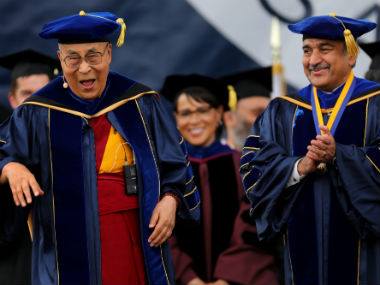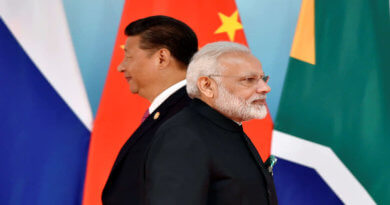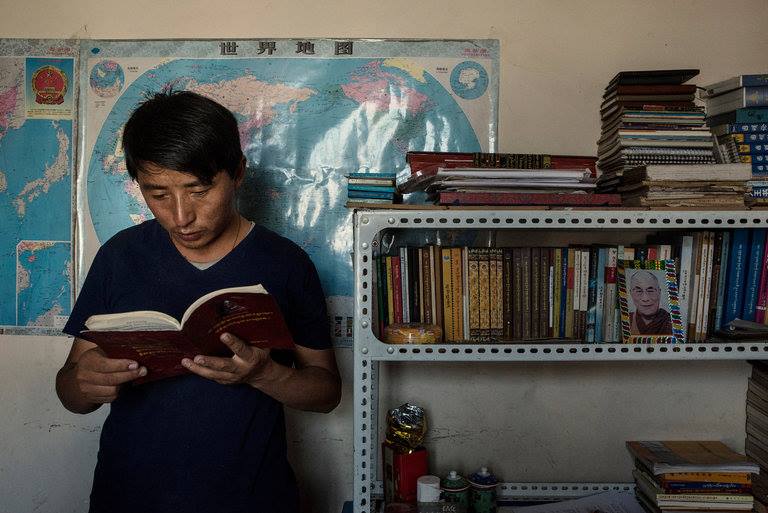Liu Xiaobo, Jailed Chinese Nobel Laureate, Is Moved From Prison for Cancer Treatment
Chris Buckley and Austin Ramzy, The New York Times | June 26, 2017
BEIJING — Liu Xiaobo, the jailed Chinese dissident who received the Nobel Peace Prize for his writings promoting democracy, has been moved from prison to be treated for late-stage cancer, one of his lawyers said on Monday.
Mr. Liu, who has been imprisoned in northeast China, was found to have an advanced form of liver cancer in late May, and soon afterward was taken to a hospital for treatment, said the lawyer, Shang Baojun, citing members of Mr. Liu’s family. Mr. Shang said the outlook for Mr. Liu appeared grim.
“It seems to be very serious, very serious,” he said. “If it was an early stage of cancer, then that would be easier to treat. But at this late stage, the treatment seems much more difficult.”
Mr. Liu, 61, was moved from a prison to a hospital in Shenyang, the provincial capital of Liaoning Province in northeast China, Mr. Shang said.
Mr. Shang said that he had not heard whether the Chinese authorities had formally granted Mr. Liu medical parole, or whether the release from prison was informal.

But Mo Shaoping, another lawyer who has represented Mr. Liu, said he was certain that Mr. Liu had been given medical parole. “Otherwise it would be legally impossible for him to leave the prison for medical care,” Mr. Mo said by telephone. “You need medical parole for that.”
Repeated calls to the No. 1 Hospital of the China Medical University in Shenyang, where the lawyers said Mr. Liu was staying, went unanswered or the line was busy.
Mr. Liu, a lecturer at Beijing Normal University, was a prominent figure during the student-led protests that swept Beijing and other Chinese cities in 1989. He was famous for fiery speeches to large groups and helped initiate a hunger strike days before the protest in Tiananmen Square was crushed by the military. He negotiated a peaceful retreat from the square, which is credited with saving many lives.
After the crackdown on June 4 in the square, Mr. Liu was jailed for 21 months, the first of several prison terms he served for his pro-democracy organizing.
In 2008, he helped write a petition calling for widespread political liberalization in China. That document, Charter 08, was initially signed by hundreds of scholars and activists. The police arrested Mr. Liu, and a year later, he was convicted of “inciting subversion of state power” and sentenced to 11 years in prison.
In 2010, he was awarded the Nobel Peace Prize for what the committee called “his long and nonviolent struggle for fundamental human rights in China.”
Mr. Liu was represented at the Nobel ceremony in Oslo by an empty chair. He was the first Nobel Peace Prize recipient to not attend the ceremony or be represented by family since the 1935 prize, when Hitler barred the German pacifist Carl von Ossietzky, who was being held in a concentration camp, and his supporters from accepting the award. Mr. von Ossietzky, whose health had degraded after years of abuse in detention, died in 1938 of tuberculosis.
In Mr. Liu’s absence, his statement from his 2009 trial, titled “I Have No Enemies: My Final Statement,” was read as his Nobel lecture.
“Hatred can rot away at a person’s intelligence and conscience,” he wrote. “Enemy mentality will poison the spirit of a nation, incite cruel mortal struggles, destroy a society’s tolerance and humanity, and hinder a nation’s progress toward freedom and democracy. That is why I hope to be able to transcend my personal experiences as I look upon our nation’s development and social change, to counter the regime’s hostility with utmost good will, and to dispel hatred with love.”
During Mr. Liu’s imprisonment, his wife, the poet Liu Xia, has been subject to house arrest in Beijing. Friends say the extreme isolation has worn on her, and she has depression and heart disease.
Mr. Mo, the lawyer, said that “in principle” Mr. Liu could receive visits from family members but that he was uncertain whether Ms. Liu was with him.
Chris Buckley reported from Beijing, and Austin Ramzy from Hong Kong.





